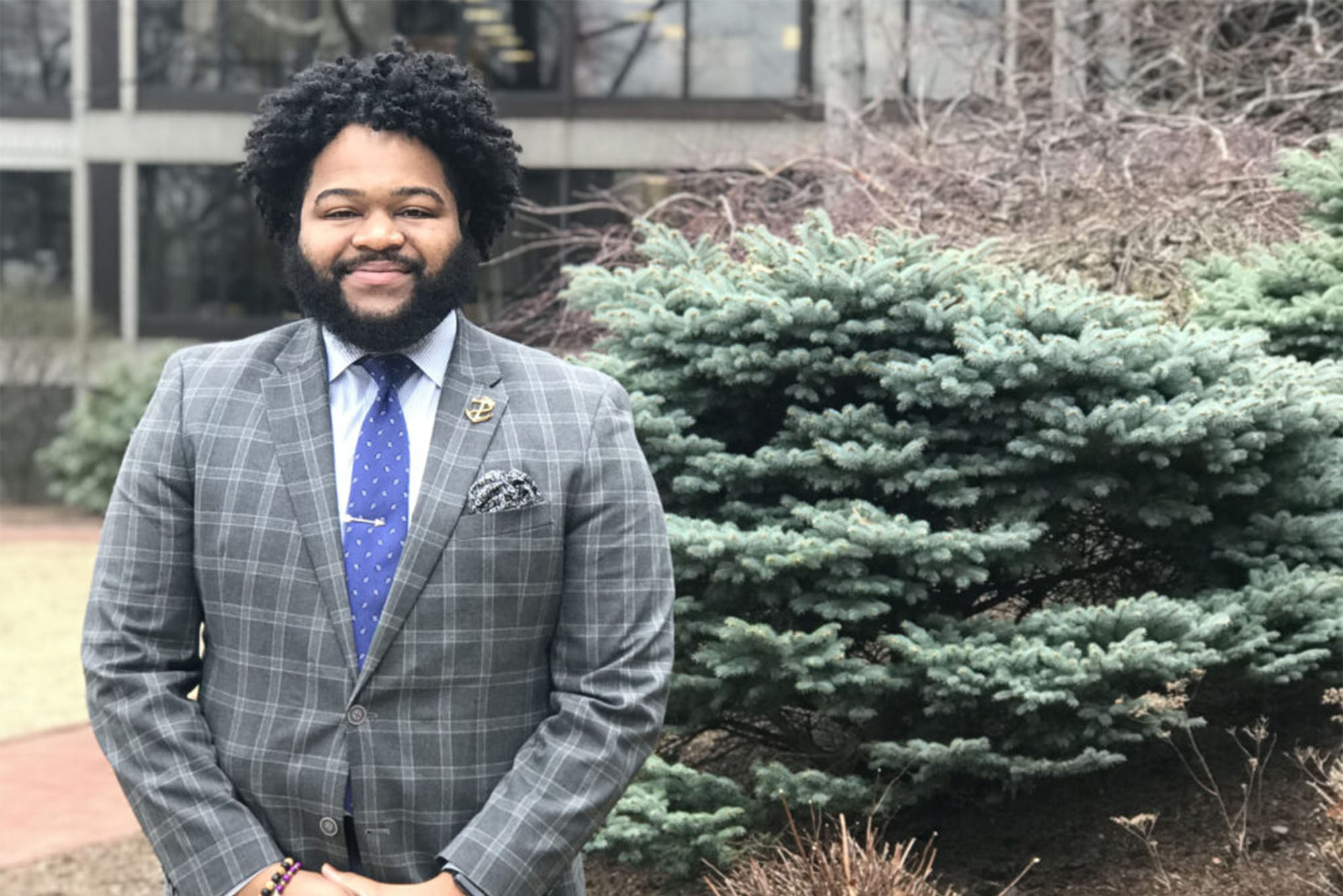Howard Thurman Center Taps Veteran Staffer as New Leader

Nick Bates, newly appointed director of the Howard Thurman Center, plans to expand the Center’s opportunities for collaborating with students. Photo courtesy of Nick Bates
Howard Thurman Center Taps Veteran Staffer as New Leader
Interim director Nick Bates plans “listening tour” to brainstorm more student collaborations
A nationwide search for the new leader of BU’s “campus living room” found the ideal person was already in the room. Nick Bates, the Howard Thurman Center for Common Ground’s (HTC) interim director, has been named its new director, effective immediately.
Bates, who has also served as assistant and associate director since joining the center in 2019, replaces Katherine Kennedy, who retired last year after 22 years leading the HTC. The center promotes “self-exploration and community building” via activities from the weekly Conversation & Coffee series to speakers forums to book discussions and board games. Its namesake, the Rev. Howard Thurman (Hon.’67), was dean of Marsh Chapel in the 1950s and 60s and was the first Black dean at a mostly white American university.
Bates says he plans a “listening tour” to increase the HTC’s collaborations with students, BU academic departments and units, and Boston community groups, partly to repair in-person bonds weakened by COVID-19.
“The most challenging part of the pandemic has been the loss of continuity,” he says. “Universities underestimate how valuable students are to the process of passing on cultural knowledge, customs, and traditions. The pandemic broke that continuity.…There is no precedent for a viral pandemic in the age of polarizing public opinions, with 24-hour news coverage and social media. We are all still grieving the life we planned prior to the events of 2020. We must be intentional about contextualizing these experiences as we navigate our futures at universities and in our lives. This is not something that happens overnight or by simply returning to normal.”
One possible initiative: “With an election year upcoming that will include some polarizing rhetoric on DEIB [diversity, equity, inclusion, belonging] initiatives and legislation, I am intrigued by the idea of revitalizing the HTC’s Student Faculty Forum. In the past, this served as an opportunity for the community to discuss matters related to the presidential elections.”
Universities underestimate how valuable students are to the process of passing on cultural knowledge, customs, and traditions. The pandemic broke that continuity.
Bates says he’s excited to follow in Kennedy’s footsteps. “The programs and the physical space are not the reason the Thurman Center is impactful. Ms. Kennedy beautifully captured the heart of Thurman’s love-ethic in the Howard Thurman Center.”
Hector Rivera (CFA’25), one of several students who met the finalists for the position, says Bates impressed him “with his interest to expand on how the HTC is a resource that connects all affinity groups across campus, and how he planned to execute and achieve those goals. I attend events led by affinity groups hosted by the HTC and was drawn to the idea of there being a single point where I can find whatever group I identify with.”
The search committee for the new director “viewed Nick as the frontrunner,” says its chair, David Zamojski, assistant dean of students and director of residential life. “Nick has name recognition in Thurman circles. He has ideas about the Center’s future, and the drive to move forward with those ideas in ways that will feel fresh for the community. At the same time, he brings a sense of continuity.”
Announcing the appointment, Jason Campbell-Foster, dean of students, called Bates “a visionary leader” who “played a pivotal role in leading the Center through a period of unprecedented growth and change.
“This includes overseeing the transition to a new facility [in 2020], adapting the Center’s offerings to the virtual world during the COVID-19 pandemic, and skillfully engaging students on some of the most sensitive and pressing social
economic and political issues of our time.”
Those newly virtual programs include the weekly Coffee & Conversation and Stress Relief (formerly Tea Time) programs, the Brothers United fellowship for men of color, and Student Ambassadors. “We will have to evaluate whether our events will continue in this way,” Bates says. “We acknowledge and appreciate how virtual/hybrid events provide increased accessibility to our events to multiple communities that may not be able to join us in person.”
Bates, who earned bachelor’s and master’s degrees from Southern Illinois University-Carbondale, is a member of the Patriot League’s Antiracism Commission.

Comments & Discussion
Boston University moderates comments to facilitate an informed, substantive, civil conversation. Abusive, profane, self-promotional, misleading, incoherent or off-topic comments will be rejected. Moderators are staffed during regular business hours (EST) and can only accept comments written in English. Statistics or facts must include a citation or a link to the citation.